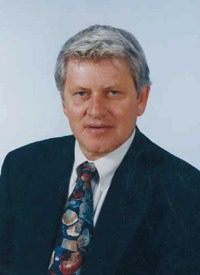
Referring to Theodore Roosevelt’s economic thoughts, Obama acknowledged that the free-market system has been the most successful system in history in delivering the highest standard of living to the greatest number of people: “He believed then what we know is true today, that the free market is the greatest force for economic progress in human history. It’s led to a prosperity and a standard of living unmatched by the rest of the world.”
But then Mr. Obama added a disclaimer, a large one. “But Roosevelt also knew that the free market has never been a free license to take whatever you can from whomever you can.”
That opens the door to more than putting Bernie Madoff in jail. Given the high degree of elasticity in their egalitarian and redistributive goals, it can give a free license to politicians to take whatever they can from whomever they can.
Obama then focused on his recurring theme of how “the rich” aren’t doing their “fair share,” and also getting too wealthy, while everyone else is getting the short end of the stick.
“Long before the recession hit, hard work stopped paying off for too many people,” he asserted. “Fewer and fewer of the folks who contributed to the success of our economy actually benefited from that success. Those at the very top grew wealthier from their incomes and their investments — wealthier than ever before.”
In fact, prior to the financial crisis and economic crash of 2008, the U.S. Census Bureau reported that income inequality in 2007 had fallen to its lowest level in six years and that the median income, adjusted for inflation, had increased for the third year in a row.
The share of national income going to the top 20 percent of households declined to its smallest share since 2002, reported the Census Bureau, producing greater income equality as the middle class got richer and the top quintile received a smaller slice of the pie.
Then came the 2008 financial collapse and subsequent recession, or, as Obama put it in his Osawatomie speech, the “the house of cards collapsed.”
Obama described the collapse: “We all know the story by now. Mortgages sold to people who couldn’t afford them, or even sometimes understand them. Banks and investors allowed to keep packaging the risk and selling it off. Huge bets, and huge bonuses, made with other people’s money on the line.”
In short, the “breathtaking greed of a few” in the private sector caused the problem, explained Obama, along with some inept government regulators.
He said nothing about the “breathtaking greed” for votes and power among the pro-redistribution politicians who got no small number of toxic balls rolling through the financial system by pushing for nothing-down loans on home mortgages for fully unqualified buyers.
Rather than pointing to the housing collapse as a classic lesson in how unintended consequences flow from ill-conceived government policies, Obama spotlighted only the “mortgage lenders that tricked families into buying homes they couldn’t afford.”
And what’s happening at the very top, while the poor are being “tricked” by the rich? “Some billionaires have a tax rate as low as 1 percent – 1 percent,” declared President Obama. “That is the height of unfairness.”
Responded the Washington Post’s “Fact Checker” column: “An administration official conceded the White House had no actual data to back up the president’s assertion.”
Ralph R. Reiland is an associate professor of economics and the B. Kenneth Simon professor of free enterprise at Robert Morris University in Pittsburgh.


